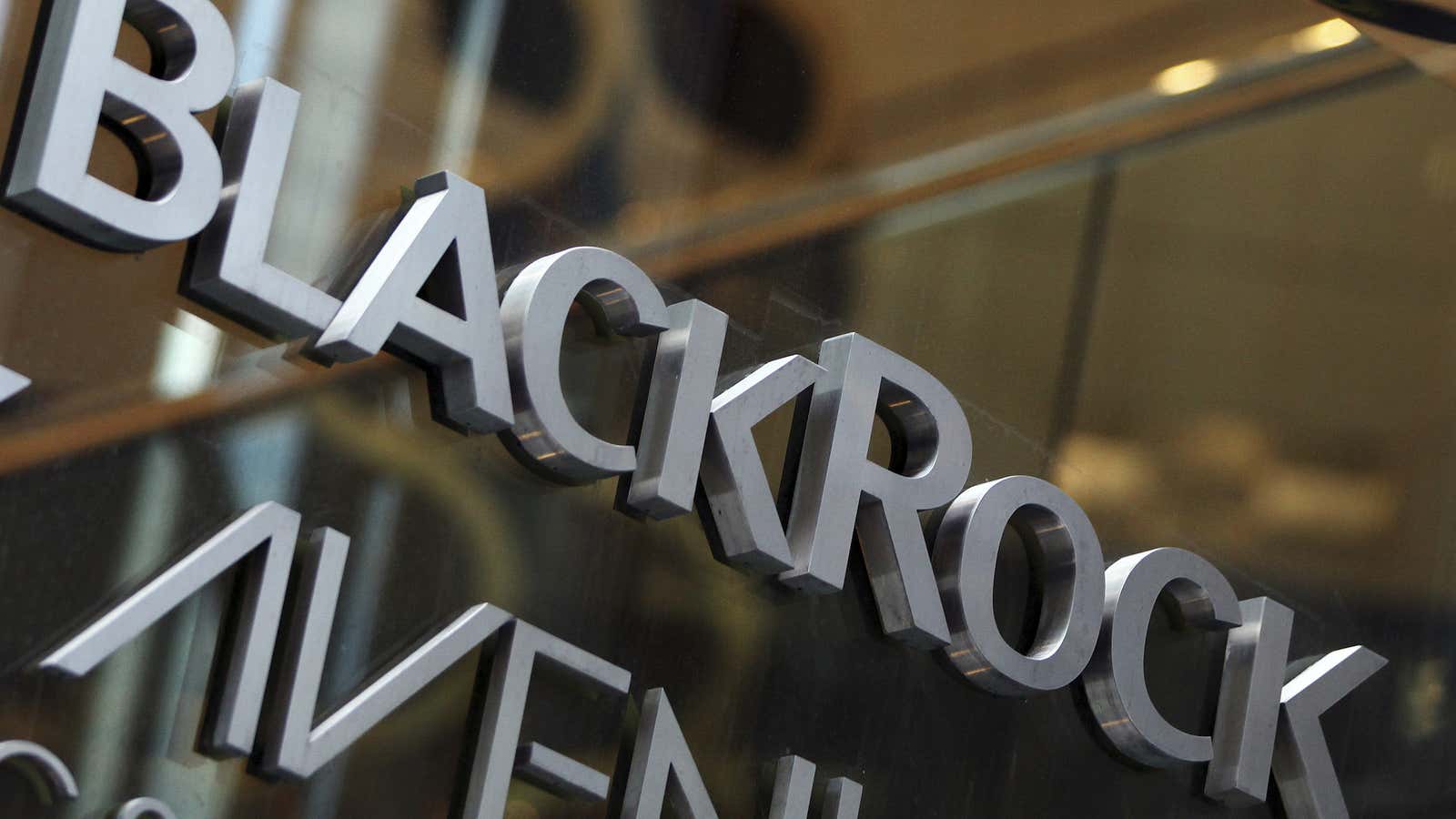This post has been updated.
The burgeoning industry of “robo-advisors,” which use complex algorithms to manage individual client portfolios, just got a big endorsement from investment giant BlackRock, which announced today (August 26) that it was acquiring FutureAdvisor, a leader in the field, for an undisclosed sum.
It would be easy for wealth managers to perceive robo-advising as a threat or even irrelevant to what they do. After all, financial advisory has long been a relationship-driven business that justifies its fees in part with high-touch services. And most of the people attracted to robo-advising may not be the big fish advisors are after. But rather than seeing it as an enemy or a nuisance, managers like Fidelity and Charles Schwab—and now BlackRock—have been adding robo-advising to their offerings.
BlackRock hopes FutureAdvisor can attract the “mass affluent”—investors with less than $1 million in investable assets —and millennials, head of BlackRock’s US wealth advisor division, Frank Porcelli, told Reuters. The thinking is that the mass affluent want sophisticated advice but may be turned off by the cost of traditional wealth managers, and that millennials are more comfortable using technology to manage their money.
Since its founding in 2010, FutureAdvisors has raised $21 million in financing from investors including Sequoia Capital and Y Combinator. It offers services ranging from retirement planning to college savings, and, as of June 2015, had $600 million in assets under management. By comparison, Wealthfront manages $2.6 billion in assets, according to a filing with the SEC. Betterment said last month that it has $2.5 billion in assets under management.
Traditional firms have hopped on board in the last year, but in different ways. Fidelity partnered with Betterment to offer a robo-advising service to its registered investment advisors in October 2014. Charles Schwab opted to build its own robo-advising service, which launched earlier this year and racked up $1.5 billion in assets under management across 23,000 accounts in its first six weeks. It said 20% of those accounts were from new customers.
Robo-advising seems to resonate with customers, even if advisors are still skeptical. A Pershing study said 69% of banked customers with taxable assets expressed interest in robo-advisors. Among the advisors surveyed, 19% said “digital advice could complement” their service, while 27% thought robo-advising was “irrelevant” to them.
But those advisors might want to pay attention: A recent report from consulting firm A.T. Kearney projected a 68% annual increase in assets managed by robo-advising services, which would push the figure to $2.2 trillion by 2020.
Update: This post has been updated to include more current information on Wealthfront’s assets.
